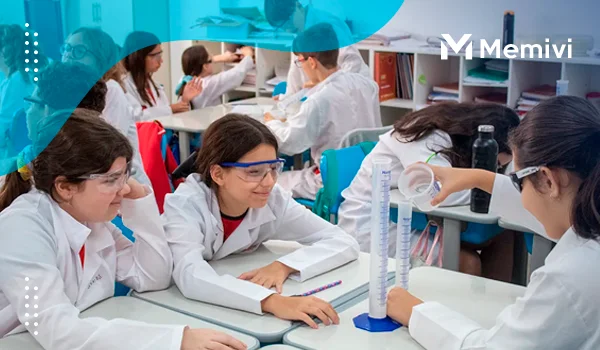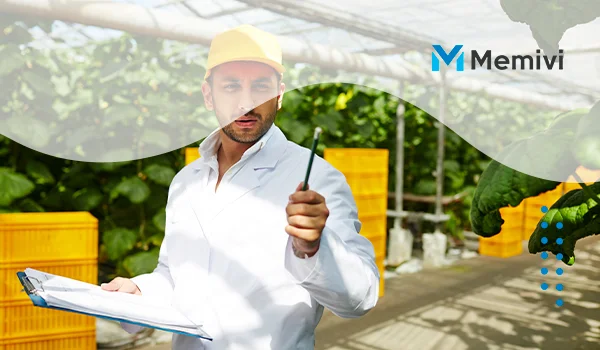
As technology rapidly evolves, exciting new career opportunities are emerging across all industries. From advances in AI to sustainable practices, the landscape is changing, offering new paths for forward-thinking professionals. Join us as we take a deep dive into the most promising fields and roles that will dominate in the coming years.
Technology and Artificial Intelligence
The rapid advancement in technology and artificial intelligence is transforming various industries. Jobs that depend on AI and machine learning are multiplying. These occupations include AI specialists, data scientists, and machine learning engineers.
Technology and AI are also enhancing existing roles. For instance, software developers now integrate AI into applications to improve user experience. Cybersecurity experts utilize AI to predict and counteract threats effectively. In addition, fields like automation and robotics are directly influenced by AI innovations.
Robots and intelligent systems are streamlining processes in manufacturing, logistics, and even service sectors. This rise in demand for AI expertise means that education in science, technology, engineering, and mathematics (STEM) is more valuable than ever. Furthermore, companies are investing heavily in AI research and development, creating endless opportunities for professionals skilled in these areas.
Overall, the integration of AI and technology into the workforce not only opens new job avenues but also revitalizes traditional roles. Staying updated with these advancements can significantly enhance one’s career prospects in the future job market.
Healthcare and Biotechnology Innovations
As healthcare and biotechnology continue to advance, they pave the way for numerous exciting career opportunities. The integration of cutting-edge technology with healthcare has led to remarkable innovations, such as personalized medicine and advanced diagnostics. These advancements are transforming how we understand and treat diseases, making healthcare more efficient and effective.
Biotechnology plays a critical role in developing new drugs and treatments, using genetic engineering, among other technologies, to address various health issues. The growth in this field demands professionals with expertise in biomedical research, bioinformatics, and bioprocessing. Moreover, biotechnology initiatives are increasingly focusing on sustainable solutions, aligning with global efforts to promote green innovations.
In the context of aging populations and ongoing global health challenges, the demand for healthcare professionals, such as biotechnologists, clinical researchers, and health data analysts, continues to rise. These roles are instrumental in advancing health outcomes and driving efficiency in healthcare systems.
Telemedicine and digital health solutions are reshaping traditional healthcare landscapes, offering remote diagnostics and consultations. This shift not only increases accessibility but also creates new career paths in tech-driven healthcare roles.
Sustainable and Green Careers

Sustainable and Green Careers have emerged as critical pathways in our evolving job market. These careers focus on conserving our planet’s resources and promoting environmental health. Whether it is working as a solar energy technician or a conservation scientist, there is a growing demand for roles that emphasize sustainability.
Professionals in this field are responsible for developing eco-friendly technologies and implementing practices that reduce waste and pollution.
Renewable Energy Experts
play a major role by harnessing natural energy sources such as wind and solar power. These careers not only support environmental conservation but also contribute to the economy by reducing dependency on non-renewable resources.
Environmental Engineers are another key career path, as they design systems to control pollution and improve water and air quality. These professionals work with businesses and governments to ensure compliance with environmental regulations and to develop innovative solutions to ecological problems.
Furthermore, careers in sustainability often intertwine with technology, such as creating apps for tracking personal carbon footprints or advancing smart grid technologies. Urban Planners specializing in green development are essential as cities strive to become more sustainable.
As these roles continue to grow, the need for innovative thinkers who can balance environmental protection with business objectives becomes essential. Professionals who are passionate about making a positive impact on the planet will find these careers fulfilling and forward-thinking.
Remote Work and Digital Nomads
The rise of remote work has transformed the professional landscape, paving the way for digital nomads who leverage technology to work from anywhere. As we explore the Professions of the Future, it’s essential to understand how this trend fits in.
Remote work offers flexibility and autonomy, enabling professionals to maintain a work-life balance. This lifestyle appeals to various job sectors, including technology, marketing, and customer service. Individuals can now live in different parts of the world while working for companies based in another continent.
Benefits of Remote Work
The main advantage of remote work is increased productivity. Workers can tailor their environment to suit their personal needs, eliminating distractions common in traditional office settings. Moreover, companies can access a global talent pool, enhancing diversity and creativity within teams. Remote work also reduces commute times, contributing to a more sustainable environment.
On the other hand, digital nomads have revolutionized the idea of a conventional job. This lifestyle brings a sense of adventure, allowing individuals to explore new cultures while earning a living. However, it requires a disciplined approach to manage work commitments alongside travel plans.
The Future of Remote Work and Digital Nomads
In the coming years, the demand for remote jobs is expected to grow. Companies are investing in digital infrastructures to support this shift. Virtual reality and augmented reality might play significant roles in creating immersive work environments, blurring the lines between physical and digital workspaces.


 Divorce & Your Finances in the UK: A Practical Guide to Splitting Assets <p class='sec-title' style='line-height: normal; font-weight: normal;font-size: 16px !important; text-align: left;margin-top: 8px;margin-bottom: 0px !important;'> Divorce can dramatically alter your financial landscape. In the UK, understanding the essentials of managing money post-separation is crucial. </p>
Divorce & Your Finances in the UK: A Practical Guide to Splitting Assets <p class='sec-title' style='line-height: normal; font-weight: normal;font-size: 16px !important; text-align: left;margin-top: 8px;margin-bottom: 0px !important;'> Divorce can dramatically alter your financial landscape. In the UK, understanding the essentials of managing money post-separation is crucial. </p>  Understanding UK Council Tax Bands: Could You Be Paying Too Much? <p class='sec-title' style='line-height: normal; font-weight: normal;font-size: 16px !important; text-align: left;margin-top: 8px;margin-bottom: 0px !important;'> Understanding UK Council Tax Bands is essential for every household to efficiently manage their annual tax obligations. </p>
Understanding UK Council Tax Bands: Could You Be Paying Too Much? <p class='sec-title' style='line-height: normal; font-weight: normal;font-size: 16px !important; text-align: left;margin-top: 8px;margin-bottom: 0px !important;'> Understanding UK Council Tax Bands is essential for every household to efficiently manage their annual tax obligations. </p>  The Bank of Mum and Dad: Navigating Family Loans for UK Property Deposits <p class='sec-title' style='line-height: normal; font-weight: normal;font-size: 16px !important; text-align: left;margin-top: 8px;margin-bottom: 0px !important;'> Let's dive deeper into this intriguing topic to understand how parents are shaping the future of homeownership. </p>
The Bank of Mum and Dad: Navigating Family Loans for UK Property Deposits <p class='sec-title' style='line-height: normal; font-weight: normal;font-size: 16px !important; text-align: left;margin-top: 8px;margin-bottom: 0px !important;'> Let's dive deeper into this intriguing topic to understand how parents are shaping the future of homeownership. </p>